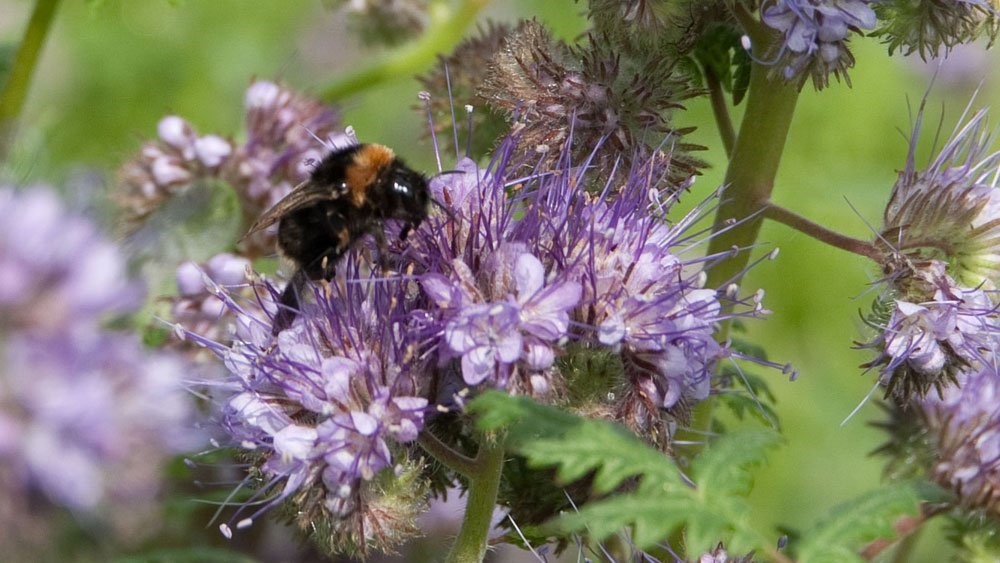So far, our trucks are getting across the Channel (albeit with a lot of additional paperwork); unlike friends in fisheries, our produce has not yet rotted in a lorry. I am relieved that my predictions of total post-Brexit chaos have not materialised.
An upside to Brexit could be better farming, food and environmental policy, but early signs are not encouraging. Within a month, our government has rejected attempts to ensure that food imports will meet the environmental, safety and animal welfare standards required in the UK; they have initiated a rushed consultation on gene editing, which has all the hallmarks of white-washing a predetermined position; and they have overturned the ban of a bee-threatening neonicotinoid insecticide to treat sugar beet seeds.
My blood boiled when I found that the NFU had been secretly encouraging farmers to lobby for the insecticide, while in the same letter asking them to ‘refrain from making the letter public‘.
Publicly pretending to be responsible (in this case, to care for the environment), while privately lobbying to resist any restriction that will impact profits, is just what the oil, tobacco and pharmaceutical industries did so effectively for 50 years. I had hoped we had moved beyond such self-serving subterfuge, and am ashamed to find my own industry perpetuating it.
For a balanced and more uplifting view of recent UK farming history, I highly recommend the Cumbrian sheep farmer James Rebanks’ very human, pragmatic and thoughtful book English Pastoral, currently being read on BBC Radio Four and available to listen online.
To add to that bit of Brexit gloom, after nine months when Covid-related absences at Riverford have mercifully been minimal, a good few co-owners have needed to self-isolate in the last two weeks. As I write (in late January), we have had to temporarily close our website to any further orders, and restrict the range in our deliveries – changes that I know will have caused disruption to many customers. Overall, we have been lucky; we are just waiting for our isolating co-owners to safely return to the farm, and then we should start getting back to normal.















Petition about the bee killing pesticides being re-introduced
https://speakout.38degrees.org.uk/campaigns/bees-emergency-1120
I am shocked that the NFU are actively encouraging farmers to lobby for the insecticide !! We definitely need to keep the ban in place and find other ways for the sugar beet farmers to deal with unwanted insects,which after all are vital to our wildlife and enviroment! Why don’t they follow the organic farms which intersperse rows of wildflowers with their crops?We definitely need to move away from industrial type farming and encourage small, independent farms all the way.!
Why can’t we buy milk direct from the farmer and pay a reasonable amount that would justifiably give a decent profit? I hate the unreasonably low price it is sold for in supermarkets ,encouraging people to buy the large cartons for very little extra cost to the small ones!
“Within a month, our government has rejected attempts to ensure that food imports will meet the environmental, safety and animal welfare standards required in the UK; they have initiated a rushed consultation on gene editing, which has all the hallmarks of white-washing a predetermined position; and they have overturned the ban of a bee-threatening neonicotinoid insecticide to treat sugar beet seeds. My blood boiled when I found that the NFU had been secretly encouraging farmers to lobby for the insecticide, while in the same letter asking them to ‘refrain from making the letter public’.”
Please remember the NFU is pro gene editing and the dangers lurking within the Trade and Agriculture Commission (TAC) membership line up. I think over 1 million people (petition signatories) were misled in one context, as the situation was never explained fully to the public by NGOs. I have been trying to get updates from the Future British Standards Coalition (FBSC). Pressure needs to be kept up on the TAC
https://www.sustainweb.org/news/nov20-future-british-standards-coalition_final_report/ and also the FBSC, so NGOs (particularly the Green Alliance) don’t gloss over inconvenient issues.
Lots of information on this website: https://desmog.co.uk/2020/07/15/government-appoints-lobbyists-us-agribusiness-ties-trade-and-agriculture-commission?
Does anyone know any more. The TAC updates on the Government website are somewhat mysterious to say the least. Information will have to be forcibly extracted. Somehow?
GM Watch, Beyond GM and GM Freeze have information on their websites on how to respond to DEFRA’s Gene Editing Consultation. The deadline is 17 March 2021. Please also see GeneWatch UK, Consultation responses.
I think it is important not to take one’s eye off the global ball too i.e. Biden and Vilsack and sign up for Testbiotech (Germany) and Friends of the Earth Europe newsletters regarding developments in the EU.
https://friendsoftheearth.eu/publication/generation-unknown-exposing-the-truth-behind-the-new-generation-of-gmos/
Thanks for sharing those links and resources Theresa – it is often difficult to find out both the fine detail and bigger picture of what is happening with agriculture policies, and organisations such as Greenpeace, CEE Bill Alliance, GMWatch, Pesticides Action Network and Friends of the Earth are good places to find out more.